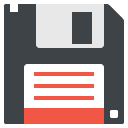Leaving the University? Do yourself, your successor and your former department a favor. Don't leave a legacy of unorganized, obsolete records for someone else to deal with. Before leaving, take the time to identify and appropriately manage all records that still have value to your former department. Use your years of accumulated administrative knowledge to make the best decisions on how your legacy records will be handled.
Use this resource as a guide in conversations and planning. For all University faculty, staff, students, and any other persons at the University involved in the design, conduct, or reporting of research at or under the auspices of the University, please refer to GIM 37 for direction regarding the management of research data at the time of your departure. And best of luck on your next adventure!
 Provide a completed copy of this checklist to your supervisor prior to departure (DOCX)
Provide a completed copy of this checklist to your supervisor prior to departure (DOCX)
For all records with continuing retention requirements or administrative value in your possession as well as any records on destruction hold because of a public records request, audit, or litigation, consider the following:
- Email
-
Keep in mind that Inbox, folders, and Sent Mail all must be managed.
- Attachments
- Save the emails to a shared location like SharePoint or a network shared drive
- Small batches of emails
- Forward the emails to someone who will be handling them in your absence
- Large batches of emails
- Save the emails into folders
- Share the folders with someone who will be handling them in your absence
- Have that person copy the folders into their email or a departmental email account
- Electronic Records
-
The management of information should be a regular off boarding task any time an individual is preparing to separate from your office or department or the UW.
Records have the same retention regardless of format. Electronic records can be a particular pain point when a staff member leaves the University. For example, not all files you see in UW Google Drive or in UW OneDrive for Business are “owned” by you. Many will be shared with you, and appear to be your files, but actually reside in the Google Drive or OneDrive account of another individual at the UW. If the owner of the records leaves the University and they are not moved to a different user's account, your work flow may be negatively impacted due to lack of access. Further, these records are subject to records retention requirements and should be preserved or deleted according to a legally approved records retention schedule. These records may also be on destruction hold because of a public records request, audit, or litigation and must remain accessible until the matter is resolved. For best practices and guidance on how to handle destruction holds, please see our Destruction Holds Resource.
Off boarding includes the migration of electronic records stored in locations that are tied to an individual employee. Examples include:
- OneDrive for Business
- UW Google Drive
- DocuSign -- Contact eSignatures Team to offboard from DocuSign
- Records stored on computer desktop or hard drive (C:)
- Personal network drive (MWS H: drive and campus U: drive)
- Flash drive, CD, removable hard disk, etc.
- Laptop, tablet, smartphone, or other mobile device (department-owned or personal)
 Save records to a shared location like SharePoint, a network shared drive, or a OneDrive account set up under a departmental NetID
Save records to a shared location like SharePoint, a network shared drive, or a OneDrive account set up under a departmental NetID
 If you are the owner, administrator, or permissions manager for any electronic resources your department uses:
If you are the owner, administrator, or permissions manager for any electronic resources your department uses:
- Assign another owner, administrator, or permissions manager; or
- Write down the department-owned NetID and password (never share your personal NetID and password, only share login information for shared/departmental and external accounts)
- Provide a list of each electronic resource and how responsibility was transferred to your supervisor
- Paper Records
-
Much of what is printed does not need to be retained and can be disposed of immediately. For paper records that must be maintained, never assume that your colleagues can find them. Use our checklist (DOCX) to identify paper records and who should have access to them.
- Small batches of active records
- Create a list of what they are and who you will be handing them off to in your absence (refer to the UW General Records Schedule or your Departmental Schedule for help batching records into types)
- Discuss the list with your supervisor
- Larger batches and inactive records
- Create a list of what they are and where they are being kept (refer to the UW General Records Schedule or your Departmental Schedule for help batching records into types)
- Hand over the list along with keys to any locked storage locations to your supervisor
 Records that are past retention and do not have any continuing administrative value can safely be shredded or deleted
Records that are past retention and do not have any continuing administrative value can safely be shredded or deleted
What did you think of our resource on off boarding?
Did we get it right or was there something we missed?
Want to tell us how your office is handling its records in the face of employee off boarding?
Back to Top of Page
![]() Provide a completed copy of this checklist to your supervisor prior to departure (DOCX)
Provide a completed copy of this checklist to your supervisor prior to departure (DOCX)![]()